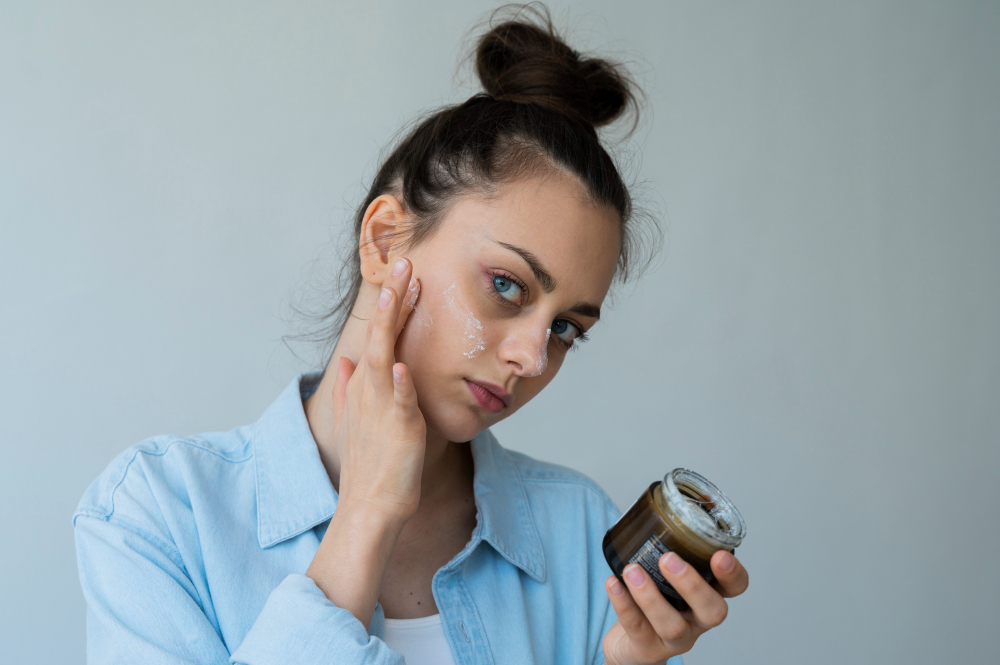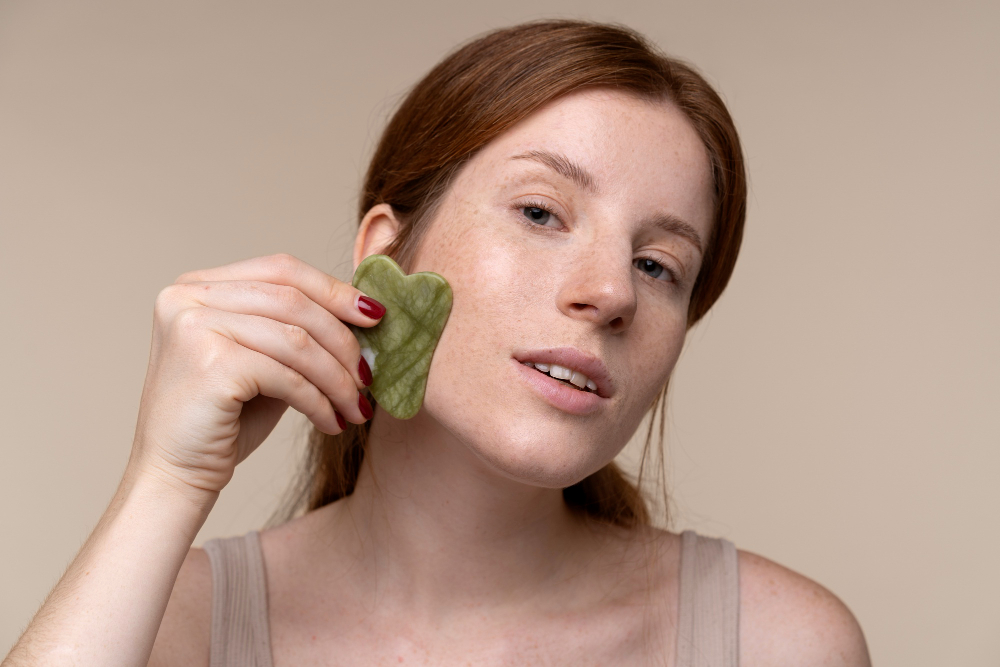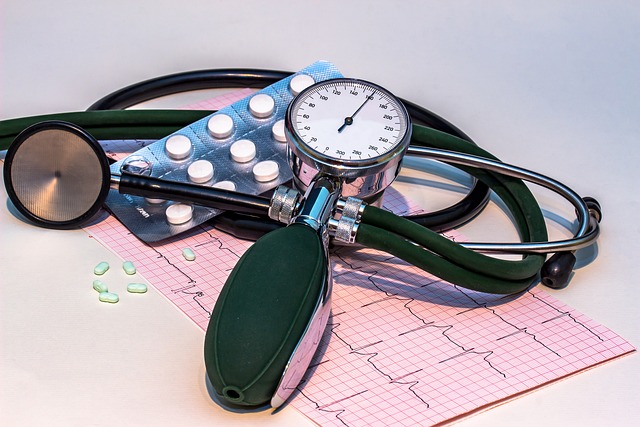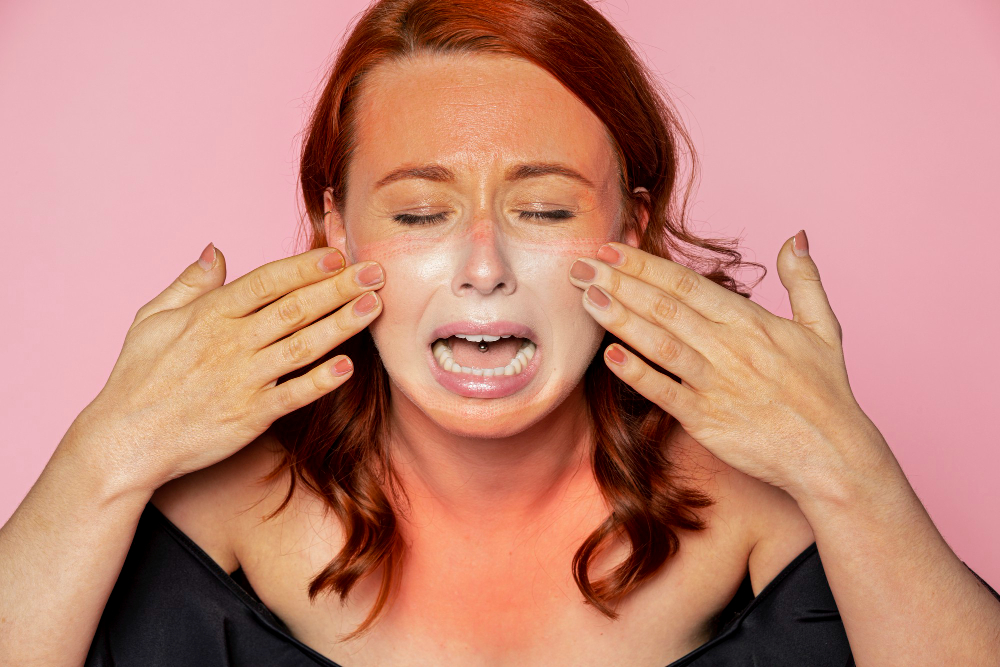Ever glanced at your reflection and noticed your skin looking flaky, dull, or tight? It might not be just the weather or your skincare routine your body could be telling you it’s dehydrated. Proper hydration plays a far bigger role in skin health than most people realize. Beyond quenching your thirst, staying hydrated helps your skin stay smooth, calm, and radiant. In this guide, we’ll explore how hydration affects your skin, what causes dryness, the link between dry skin and acne, and how to keep your skin comfortably balanced through smart hydration habits.
What does Dry Skin mean?
Dry skin, also called xerosis, isn’t just a seasonal nuisance. It’s your skin’s way of showing that something’s off. When your skin doesn’t hold enough moisture, you may experience:
- Flaking or peeling
- A tight or stretched sensation
- Persistent itching
- Red or rough patches
Why does this happen?
Several everyday habits and conditions can be the culprits:
- Cold weather or dry air can strip your skin of its natural oils.
- Hot showers, though comforting, can break down your skin’s barrier.
- Soaps with harsh ingredients often remove essential moisture.
- Medical issues like eczema, psoriasis, or an underactive thyroid may worsen symptoms.
- And the most commonly missed one — not drinking enough water.
Hydration’s Hidden Impact on Skin
Your skin is your body’s largest organ. And like every organ, it needs water to function properly. Hydrated skin looks plump, feels soft, and acts as a better barrier against environmental stressors. Dehydrated skin, on the other hand, can appear dull, more lined, and even become more prone to inflammation and breakouts.

How Does Hydration Work?
Water gets to your skin via the bloodstream, but it can be lost through sweat, dry air, and poor skincare habits. That’s why hydration should happen in two ways:
- From the inside – by drinking fluids and eating water-rich foods
- From the outside – by applying moisturizers that help hold that water in place
Hydration vs. Moisturization
These two terms are often used interchangeably, but they refer to different steps in your routine.
- Hydration is all about adding water. This could be through drinking fluids or using water-attracting skincare ingredients like glycerin or hyaluronic acid.
- Moisturization involves sealing that water in using oils or creams, think shea butter, ceramides, or plant-based oils.
Dehydrated Skin: What to Watch For
Your body has subtle ways of letting you know it needs more hydration. These include:
- Skin that feels tight and lacks elasticity
- Dullness or an uneven texture
- Flaky spots that persist even after moisturizing
- Dark circles appear more pronounced.
Other symptoms like low energy or frequent headaches can also signal you’re not drinking enough water.
Surprising Link Between Dry Skin and Acne
You might assume oily skin causes acne, but dryness can play just as big a role. When skin dries out, it often overcompensates by producing more oil. This excess oil can clog pores — especially when combined with dead skin cells from flaking — and lead to breakouts.
Also, many acne treatments like salicylic acid or benzoyl peroxide are drying by nature. Without adding hydration back into your routine, you can end up in a cycle of redness, dryness, and recurring blemishes.
- Pair acne treatments with calming, hydrating ingredients
- Limit face washing to twice daily with a gentle cleanse.r
- Sip water consistently throughout the day — not just when you’re thirsty.
Eat (and Drink) Your Way to Better Skin
Good hydration isn’t just about how much water you drink.
Hydrating Foods:
- Cucumber – High water content and soothing for the skin
- Watermelon – Refreshing and packed with antioxidants
- Lettuce & Celery – Great water content with added fiber
- Strawberries – A sweet way to add water and antioxidants
Drinks That Help:
- Coconut water – Natural electrolytes help retain moisture
- Herbal teas – Calming and caffeine-free
- Infused water – Add lemon, mint, or berries for flavor without sugar
Try to limit alcohol and caffeinated drinks, both of which can dry you out quickly.
Hydrating Skincare Routine — Morning and Night
A solid Hydrating skincare routine can support your hydration goals and help prevent dryness.

Morning Routine:
- Cleanse gently — skip foaming or alcohol-based cleansers.
- Use a hydrating toner with rose water or aloe vera
- Apply a lightweight hydrating serum like hyaluronic ac.id.
- Follow up with a nourishing moisturizer.zer
- Don’t skip sunscreen — go for a hydrating formula with SPF 30 or hi. gher
Evening Routine:
- Cleanse skin to remove dirt, makeup, or sweat
- Reapply your hydrating serum (or try niacinamide at night)
- Use a richer cream or overnight mask to lock in moisture.
Tip: Always apply products to damp skin for maximum absorption.
Daily Habits That Make a Difference
Small lifestyle tweaks can help your skin stay more consistently hydrated.
- Use a humidifier, especially in winter or air-conditioned rooms.
- Shorten your showers, and always moisturize right after
- Wear natural, breathable fabrics like cotton.
- Don’t smoke – it ages and dehydrates skin faster than anything else.
Most people experience dry skin now and then. It’s especially common during colder months or after using skincare products that don’t suit your skin. Usually, the fix is simple: switch to a better moisturizer, drink more fluids, and steer clear of drying soaps or cleansers. But if the issue sticks around and starts affecting how your skin feels daily, that’s when it’s smart to dig a little deeper.
Skin that stays dry, flaky, or itchy for weeks—even when you’re doing all the right things—might be reacting to something more serious. If it begins to crack, bleed, or stay red and sore, it’s worth getting a second opinion. Conditions like eczema or psoriasis aren’t just irritating; they often need medical care to calm down.
Odd as it may seem, dry skin can lead to acne. When your skin isn’t getting enough moisture, it sometimes overproduces oil to compensate. That oil mixes with dead skin and blocks pores, causing spots and blackheads. If your usual routine includes cleansing, moisturizing, and staying hydrated—but pimples keep popping up—something deeper might be going on.
That’s where a dermatologist comes in. They won’t just hand you a cream and send you home. A good one will ask about your lifestyle, look closely at the products you’re using, and help pinpoint what’s throwing your skin off. Sometimes the answer is surprisingly simple—like switching one product or cutting back on a food that’s triggering inflammation.
Hydration Isn’t Optional — It’s Essential

It’s easy to overlook dry skin. Maybe it seems like a cosmetic issue, or something that’ll go away on its own. But if you’ve ever dealt with skin that feels tight, sore, or just won’t cooperate, you know how much it can affect your day.
That goes beyond drinking water—though that’s part of it. That might mean using a cleanser that doesn’t strip your skin, adding a hydrating serum before your moisturizer, or simply being more consistent with your routine.
When it’s screaming for help, don’t push through the discomfort and hope it gets better. Take action. Whether it’s adjusting your routine or consulting with a skincare professional, dedicating attention to your skin can make a significant difference.
In the end, well-hydrated skin isn’t just about looks—it’s about comfort, confidence, and overall health. If dryness keeps coming back or starts leading to other problems, don’t ignore it. Help is available, and the payoff is skin that feels good and looks even better.
FAQS
1. Why is my skin still dry even though I drink a lot of water?
Hydration from the inside is important, but your skin also needs topical care. Without using hydrating skincare products and a good moisturizer, water alone might not be enough.
2. What’s the difference between hydration and moisturization?
Hydration means adding water to the skin, usually with ingredients like hyaluronic acid. Moisturization seals that water in using oils or creams to prevent it from evaporating.
3. Can dry skin cause acne?
Yes. When your skin is too dry, it often produces more oil to compensate. That excess oil can mix with dead skin and clog pores, leading to breakouts.
4. How can I tell if my skin is dehydrated or just dry?
Dry skin lacks oil, while dehydrated skin lacks water. If your skin feels tight, looks dull, or shows fine lines, it’s likely dehydrated—even if it’s oily at the same time.
5. What are some signs I should see a dermatologist?
If dryness lasts for weeks, you have cracks, redness, or bleeding, or your acne worsens despite hydration, it’s time to get professional advice.
6. Do certain foods help hydrate the skin?
Yes! Water-rich foods like cucumber, watermelon, oranges, and strawberries support hydration from the inside out and contribute to healthier-looking skin.
7. Should I avoid hot showers if I have dry skin?
Definitely. Hot water can strip your skin’s natural oils. Try lukewarm showers and moisturize immediately after, while your skin is still damp.
8. Can using too many skincare products cause dryness?
Yes. Over-cleansing, harsh ingredients, or using too many actives (like acids or retinol) can damage your skin barrier and lead to dryness.
9. What should a basic hydrating skincare routine include?
A gentle cleanser, hydrating toner or serum (like hyaluronic acid), a moisturizer to lock in moisture, and sunscreen during the day.
10. How can I make my home environment better for my skin?
Use a humidifier, especially in winter or when running the AC. Dry air can pull moisture from your skin, making it harder to stay hydrated.








